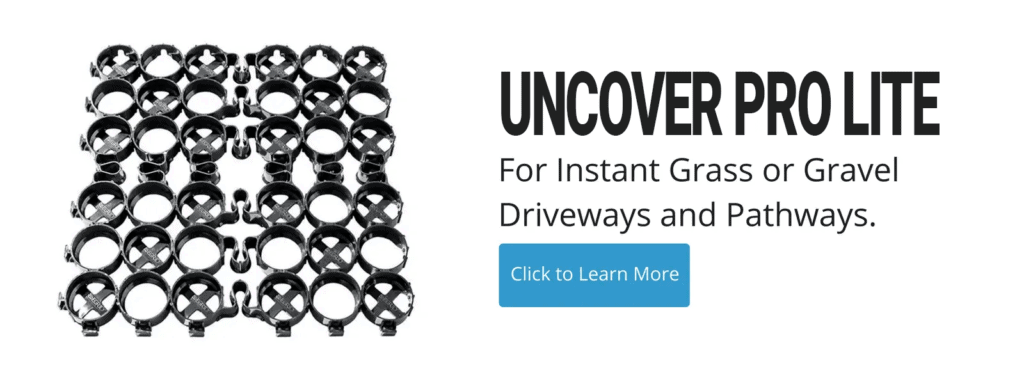Nowadays, it’s not enough to have a basic asphalt or concrete driveway. With so many other driveway paving options available, it’s no surprise that a large percentage of homeowners are looking to or already have migrated away from concrete and asphalt as a means of paving their driveways.
Pavers are the next best thing in terms of driveway paving, but with so many different types and styles to choose from, it can be downright intimidating to even begin looking. If you’re a homeowner looking to replace your driveway or install a new one soon, let’s run through the best pavers for driveway use.
1. What Kind of Pavers Do You Want?
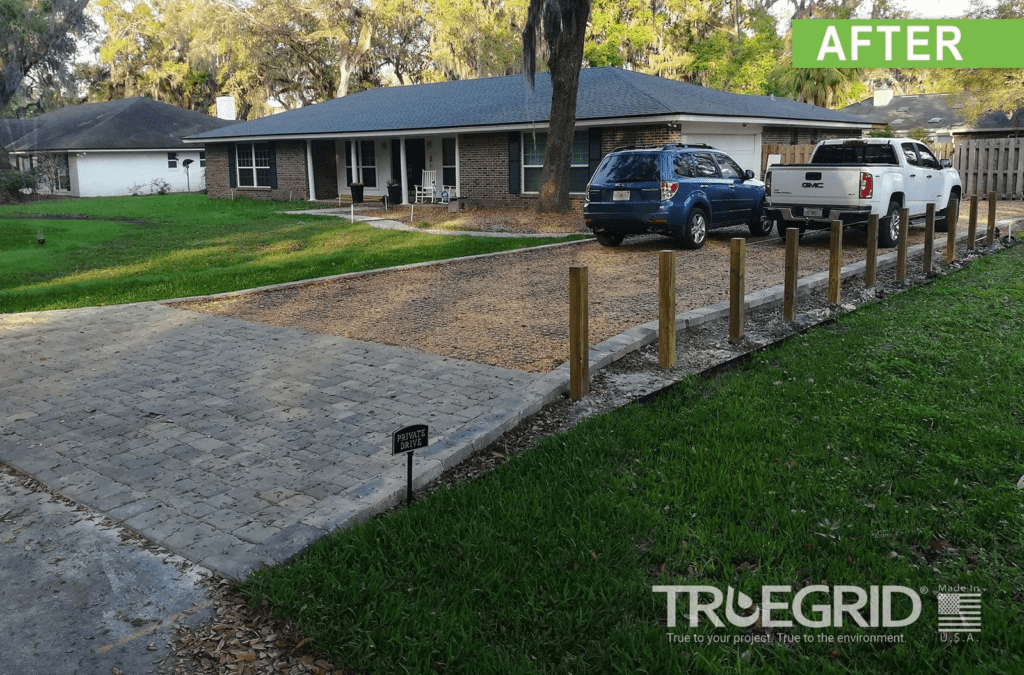
The first thing to consider when contemplating the best pavers for driveway use is what kind of pavers you want. There are many different types, each with unique pros and cons that may or may not be suited for your particular interests. The most common types of pavers include brick, concrete, cobblestone, rubber, porcelain, marble, travertine, bluestone, flagstone, and plastic.
What are your top goals for the driveway? What paver system has the best drainage to protect your home from flooding? What system will last longest with the least maintenance? What will improve the appearance and curb appeal of your home? How can you save money?
Brick is great for aesthetic appeal and stylistic diversity. Brick pavers tend to be eco-friendly but can be easily damaged and worn down. They also require frequent maintenance to be performed if they are to stay in good shape. Installation is labor intensive and expensive.
Concrete pavers are also stylistically diverse and easy to install. They do, however, experience color fade over time and can crack during extreme temperature fluctuations. They may be expensive and are considered high-maintenance.
Bluestone has a uniquely beautiful blue color while also being durable. It’s easy to accidentally purchase fake bluestone, though, and the authentic stuff is incredibly expensive. Flagstone is non-slip and lasts longer than concrete pavers. They are sourced naturally, however, making design and cost much more of an issue than with other types of driveway pavers.
Porcelain, cobblestone, marble, and travertine are all great for aesthetics, but incredibly easy to damage and don’t hold up for everyday driveway use. Rubber pavers can be durable but lack style and are not very eco-friendly either. Gravel or grass filled plastic pavers are the most durable type available and have a variety of styles to choose from. They are the most eco-friendly pavers since they are sourced from 100% recycled plastic.
2. What Type of Driveway Do You Want?
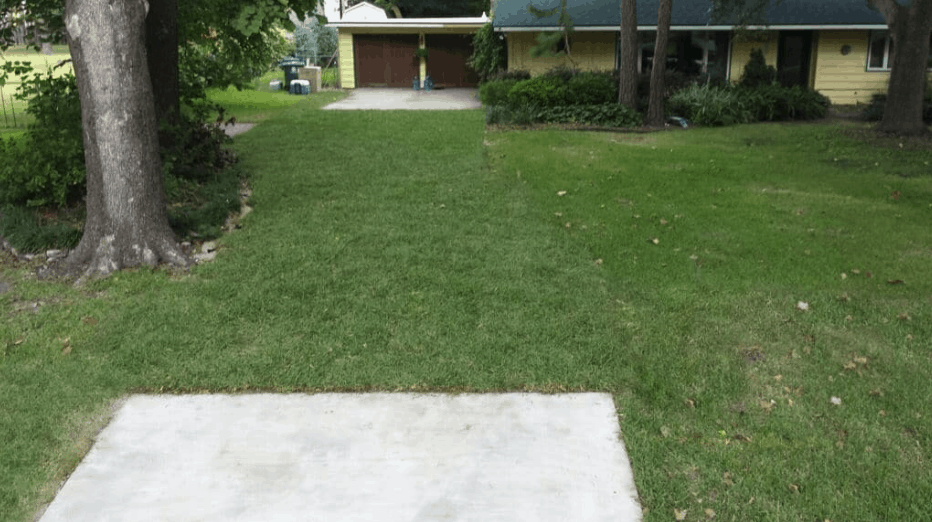
Is drainage important? Do you wish added protection to keep water away from your home? This is in reference to either an impermeable driveway or a permeable one. A permeable driveway allows water to drain right through it, while an impermeable one does not. If you have a driveway that is prone to flooding or erosion, this type of driveway will eliminate those water damage problems when installed with a drainage rock base. You can even have some type of heating system installed beneath your permeable paver driveway to prevent the buildup of snow or ice, which already melts and dissolves faster than an asphalt or concrete driveway. Snow plowing is no problem in cold climates.
3. Miscellaneous Factors
This is where the rest of your considerations will come into play. Cost-effectiveness, eco-friendliness, maintenance, durability, curb appeal, and local regulations and incentives should all be considered. TRUEGRID permeable pavers are by far the most cost-effective method and one of the best driveway pavers available. They are built, transported, and installed with eco-friendliness as a top priority, and the installation time is next to nothing.
The time and effort it takes to install a permeable paver driveway with TRUEGRID products is so much less compared to a hardscape, in fact, that you could even complete the installation on your own in a single day and have your family help you out as a DIY project.
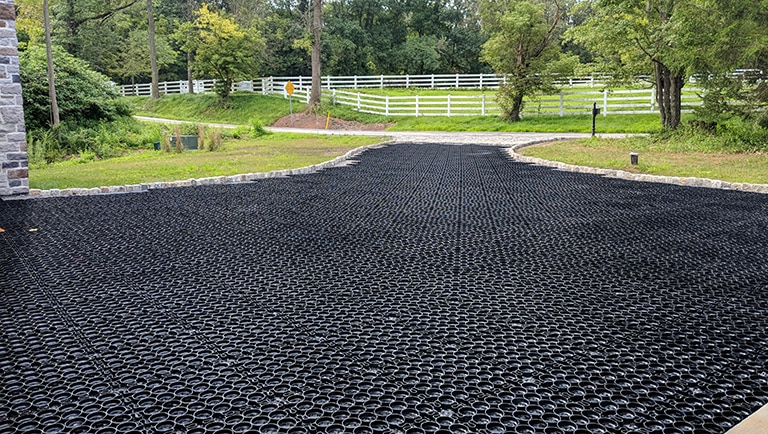
Pavers are also more durable than any other type of stone or impermeable material, and can even boost your curb appeal depending on how you choose to install them and in what style/color. There are tax incentives available for some areas as a reward for installing these environmentally-friendly pavers, so check your local regulations to see if you qualify.
The Right Pavers Can Make or Break Your Driveway

Solid concrete and asphalt driveways are being phased out of use as we enter the new decade. With so many more options available than ever before, you’re sure to find the paver that suits you best. Style, durability, cost, and eco-friendliness are sure to factor into your decision, so if you want the best driveway pavers that perform highly in all of these categories, you should install a permeable paver driveway from TRUEGRID.
When it comes to your driveway, you want something that is going to last a long time on its own, without any maintenance, while simultaneously being eco-friendly and helping to prevent driveway flooding. If you want a driveway that solves all of your erosion and flooding problems without breaking your bank, boost your curb appeal by going with TRUEGRID. They have the best pavers for driveways, hands down.
If you want to build your gravel driveway the maintenance-free way, get in touch with the pavement professionals at TRUEGRID today for a quote.
option for the base layer of a gravel driveway is item #4. Item #4 is comprised of sand, dirt, and golf ball-sized stones. This type of gravel is available in a few different variations including recycled item # 4, which is made up of recycled stones, brick, blacktop, concrete, and rock.
There is also quarry item # 4, or crushed limestone, gray item # 4 which appears dark grey in color, and crushed bluestone item #4. Crushed bluestone item #4 is usually found in municipal driveways, though.
The middle layer of a gravel driveway features stones closer to golf ball size, with #57 stone being the prominent type of gravel. Otherwise known simply as crushed gravel, #57 stone also helps promote drainage.
5 Types of The Best Surface Gravel for Driveaway
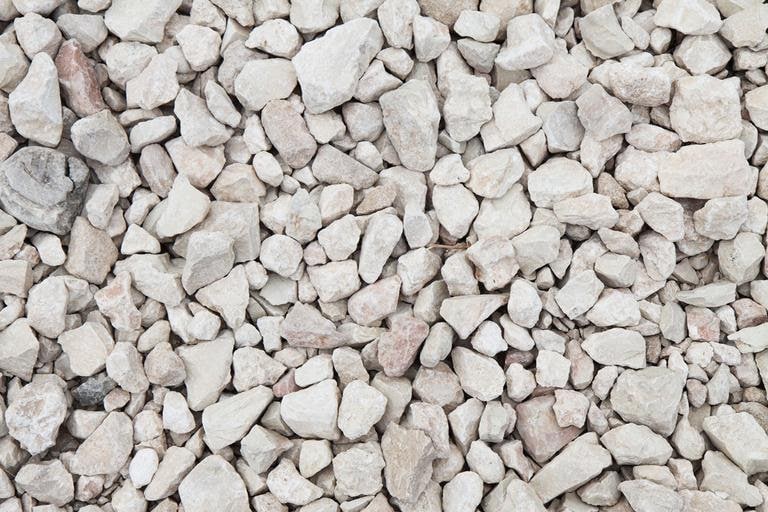
There isn’t a lot of variety for the bottom layers of a gravel driveway, however, there are more options when it comes to finding the best gravel for driveway surfaces. Among the other options are crushed stone #411, quarry process, pea gravel, jersey shore gravel, marble chips, and river rock. These are the best options for driveway surfaces gravel, because they are small stones combined with rock dust, which makes a more solid driving surface.
1. Crushed Stone #411
It is crushed up #57 stone combined with rock dust. This mixture is able to handle moderate traffic from heavy vehicles.
2. Quarry Process
It is also called “crusher run” and works well for the surface of both driveways and walkways. It’s made from stone dust fines and crushed stone.
The stone dust will settle and become compact to create a semisolid surface that is smooth. It is important that you know that this type of surface gravel needs to be sloped towards the sides of your driveway for better drainage.
3. Pea Gravel
Pea gravel is popular gravel for driveway aesthetics. It’s made up of round, small stones that can come in many different colors. This type of gravel will easily migrate and spread under the weight of vehicles, though, and needs to be stabilized for long-term, maintenance-free usage.
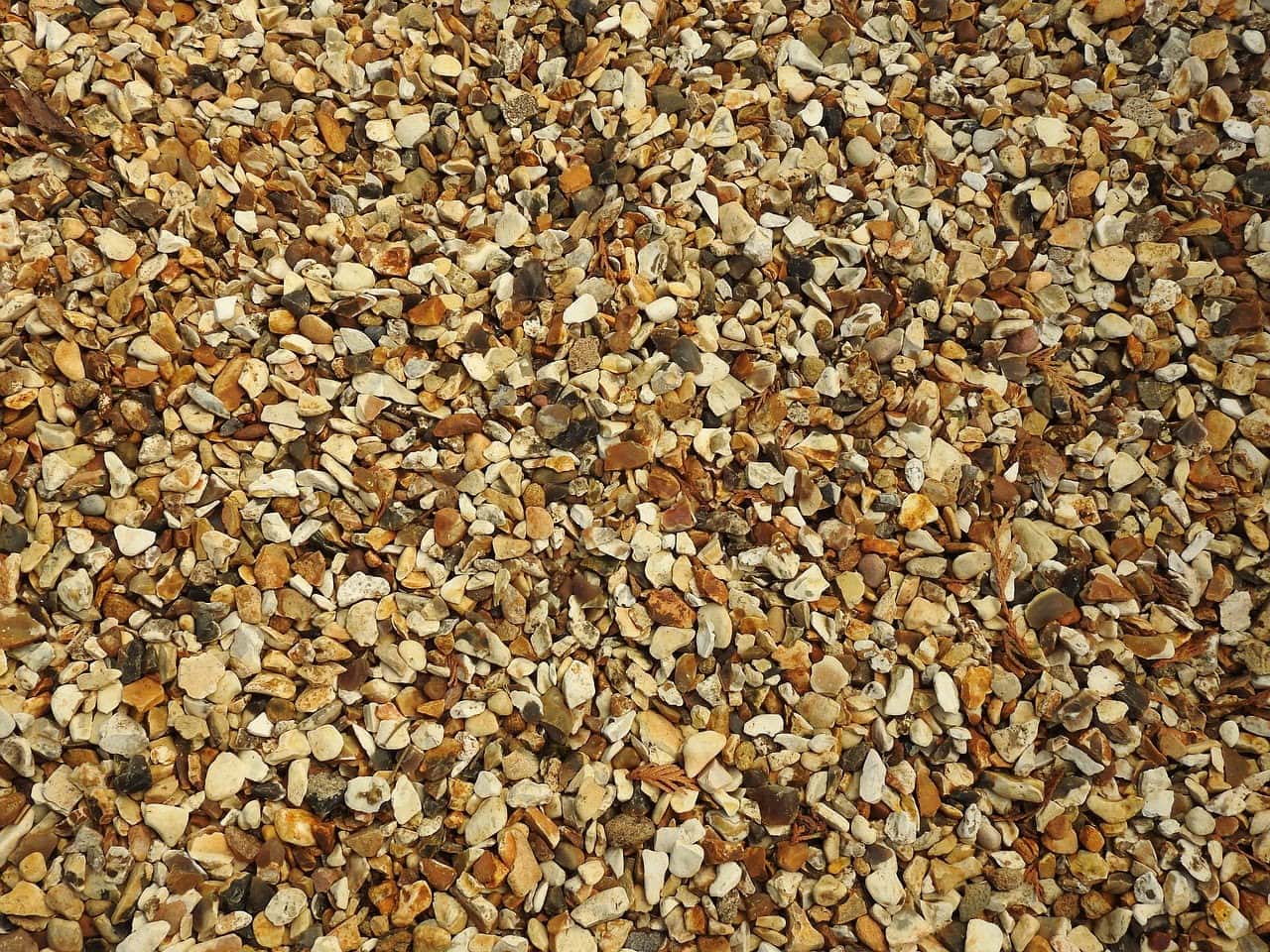
4. Jersey Shore Gravel
It is made of yellow, tan, white, gold, and brownstones and looks quite a bit like sand. It’s similar to pea gravel since it needs borders or stabilizing pavers to prevent it from spreading.
5. Marble Chips
Marble chips are white and they sparkle in the sunlight. They typically cost more than other gravel types but are another favorite when it comes to being the best gravel for driveway aesthetic appeal. This type of gravel also needs a border or stabilization to prevent it from spreading, migrating, and washing away.
6. Blackstar or Blacktrap Rock
A very attractive dark gray gravel, this is an excellent choice as it is angular and locks together. When combined with stabilizing grid paving system, this provides a super durable and beautiful driveway.
A Better Alternative to Typical Gravel Driveways
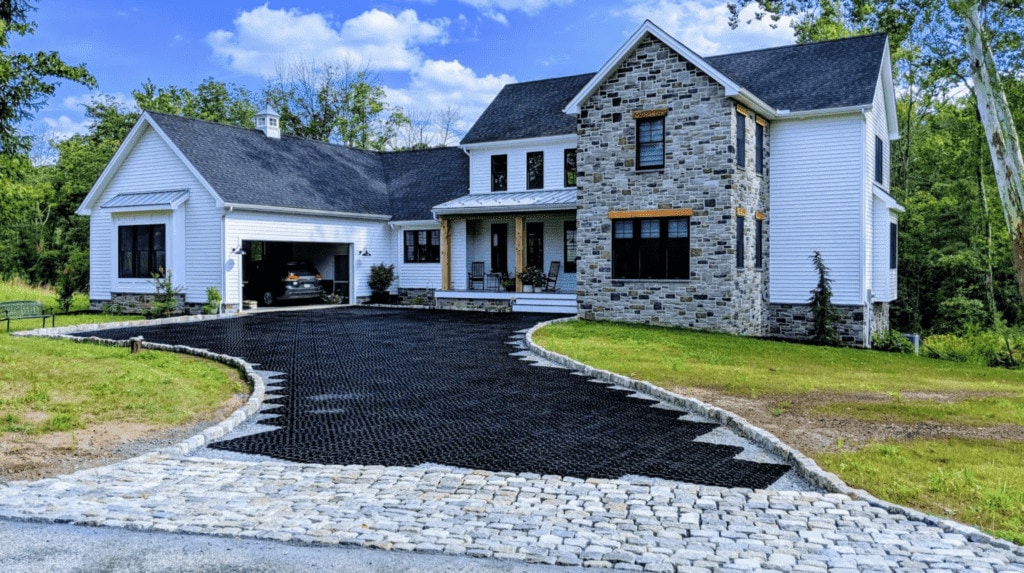
Some of the aforementioned gravel types require stabilization, but the best way to construct any gravel driveway is by using TRUEGRID permeable pavers to lock in your gravel.
TRUEGRID PRO LITE and PRO PLUS stabilizing pavers simply require fill gravel and surface gravel, although you can use the same type of gravel for both. The fill gravel is poured over the top of a piece of fabric at the bottom of the excavated area where you want your driveway that provides drainage for water and other liquids.
It is then compacted and leveled before TRUEGRID permeable pavers are snapped in place over the surface. Next, your surface gravel of choice is poured over the pavers and locked into place using a heavy roller or vehicle. This weighs the pavers down and locks them securely into place.
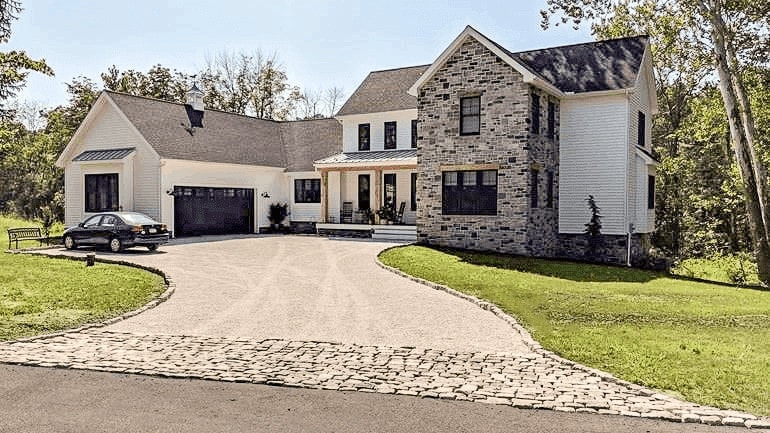
The main benefit of using TRUEGRID pavers to build a gravel driveway is that they will keep your gravel in place, eliminating the need for almost any maintenance during the course of your driveway’s lifetime.
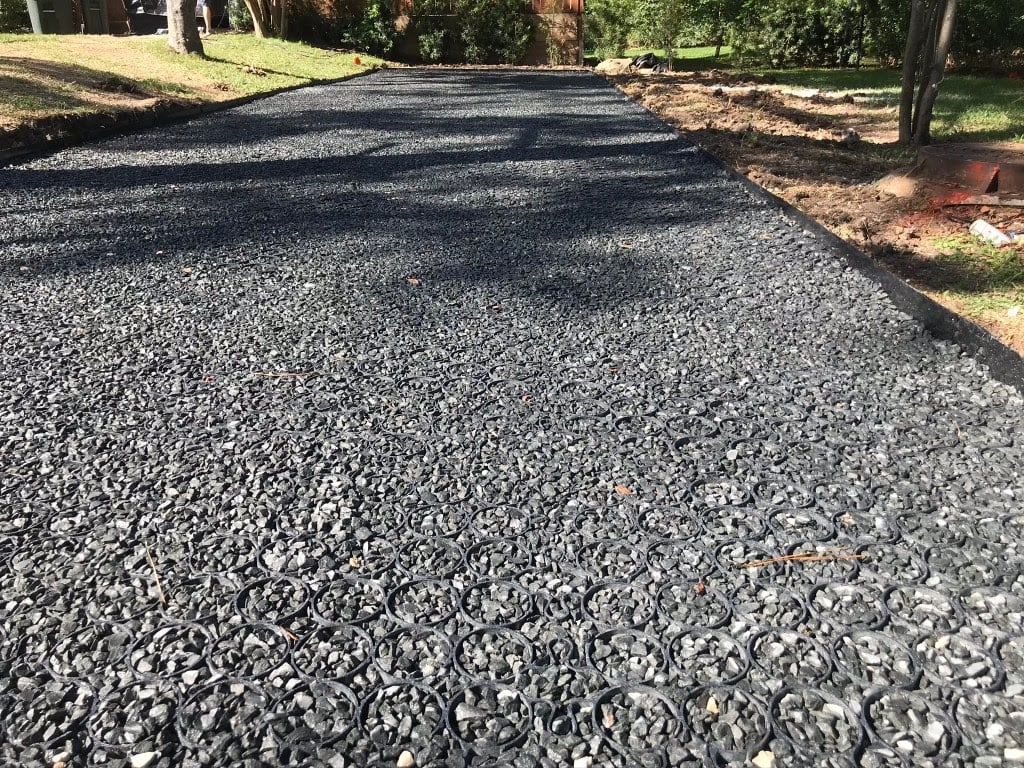
A properly installed and maintained TRUEGRID gravel driveway is durable enough to handle all types of vehicle traffic and will last up to 60 years without cracking or breaking down in the sun, rain, or other types of weather like asphalt does.. Choosing the best gravel for driveway usage is only part of the equation.
If you want to build your gravel driveway the maintenance-free way, get in touch with the pavement professionals at TRUEGRID today for a quote.
